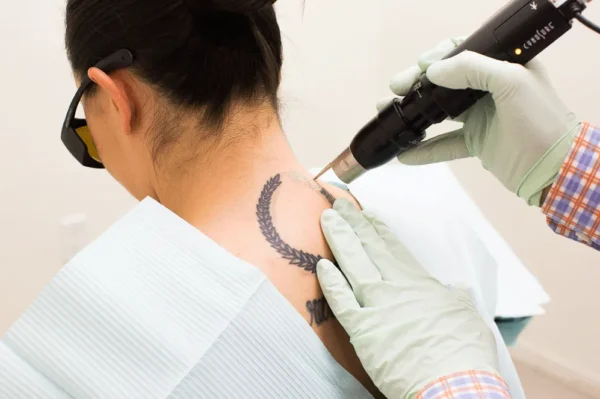
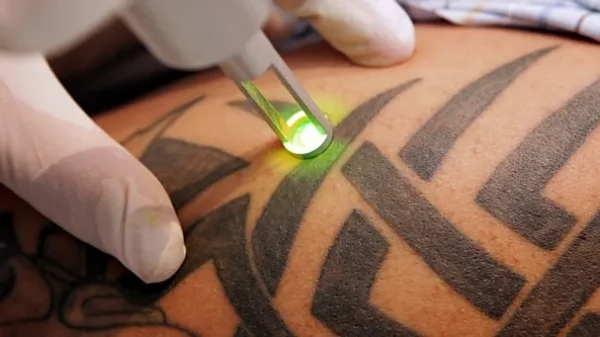
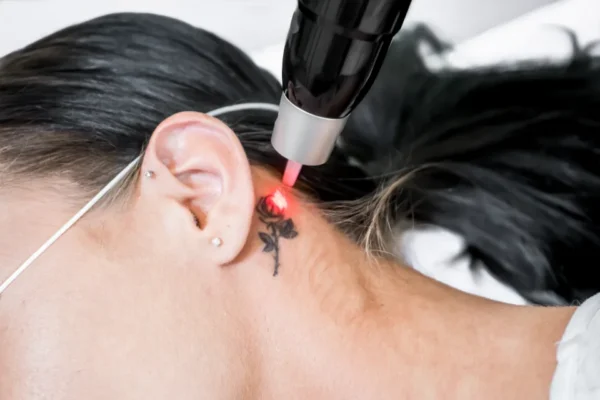
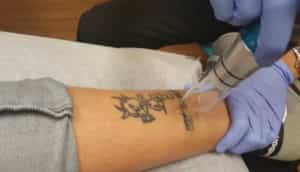

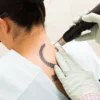
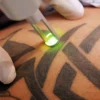
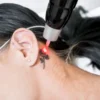
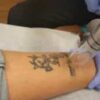
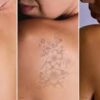

Free
Embark on a transformative journey with our exceptional range of medical treatments. As a leading medical tour operator, we offer a comprehensive selection of world-class treatments and procedures to address your unique healthcare needs. From advanced surgeries to cutting-edge therapies, our team of experienced professionals is dedicated to providing top-notch care and ensuring your comfort and satisfaction. Discover a new level of healthcare excellence with our tailored treatment options. Book now to start your journey towards a healthier and happier you.
Laser skin tightening is a cosmetic procedure that uses heat to promote the natural production of collagen and elastin, two proteins that firm and plump the skin. It is a non-surgical or minimally invasive treatment that aims to reduce signs of skin aging and improve skin tightness. Here are some key points about laser skin tightening:
Procedure: Laser skin tightening involves the use of lasers that emit infrared light to heat the collagen in the skin. This heating process causes the collagen fibers to constrict, leading to skin tightening. The procedure is typically performed by a cosmetic dermatologist or a highly trained skincare professional.
Treatment Areas: Laser skin tightening can be done on various areas of the body where loose or sagging skin is present. Common treatment areas include the face, neck, stomach, thighs, buttocks, arms, and décolletage.
Benefits: Laser skin tightening can help improve the firmness, smoothness, and overall appearance of the skin. It can reduce the appearance of wrinkles, fine lines, and sagging skin. The procedure is non-surgical, minimally invasive, and generally requires little to no downtime.
Results: Results from laser skin tightening may vary depending on the individual’s skin condition, the specific laser method used, and the number of treatment sessions. Some skin tightening may be noticeable immediately after the first treatment, but the full results become more pronounced with each subsequent session. With proper care, the results can last up to several years.
Safety and Side Effects: Laser skin tightening is generally considered safe when performed by a qualified professional. Side effects are rare but may include temporary redness, swelling, or mild discomfort. It is important to discuss any potential risks or concerns with a healthcare professional before undergoing the procedure.
Laser skin tightening is suitable for individuals who are looking to improve the firmness, smoothness, and overall appearance of their skin. It can be beneficial for the following:
Sagging or Loose Skin: Laser skin tightening can help tighten and firm sagging or loose skin, particularly in areas such as the face, neck, stomach, thighs, buttocks, arms, and décolletage.
Fine Lines and Wrinkles: The procedure can reduce the appearance of fine lines and wrinkles, improving the overall texture of the skin.
Skin Laxity: Laser skin tightening can address skin laxity, which is the loss of elasticity and firmness that occurs with age.
Skin Rejuvenation: It can be used as a complementary approach to overall skin rejuvenation, helping to boost collagen production and improve the overall appearance of the skin.
Preventative Measures: Laser skin tightening can also be used as a preventative measure against aging for younger individuals by stimulating collagen production.
Based on the search results, laser skin tightening may not be suitable for the following individuals or conditions:
Excessively Sagging Skin: Laser skin tightening may not be as effective for individuals with excessively sagging skin. In such cases, surgical intervention may be more appropriate.
Certain Medical Conditions: Individuals with certain medical conditions, such as active skin infections, open wounds, or skin cancer, may not be suitable candidates for laser skin tightening. It is important to consult with a healthcare professional to determine if the procedure is safe for you.
Pregnancy or Breastfeeding: Laser skin tightening is generally not recommended for individuals who are pregnant or breastfeeding. It is important to consult with a healthcare professional to assess the safety of the procedure during these periods.
Recent Sunburn or Tan: It is advisable to avoid laser skin tightening if you have recently experienced sunburn or have a tan. The procedure may be more effective and safer on untanned skin. It is recommended to consult with a healthcare professional for guidance.
Unrealistic Expectations: It is important to have realistic expectations about the results of laser skin tightening. While the procedure can improve skin tightness and texture, it may not completely eliminate all signs of aging or drastically change one’s appearance. Consulting with a healthcare professional can help set realistic expectations.
Based on the search results, here are some advantages of laser skin tightening:
Skin Tightening: Laser skin tightening can effectively tighten loose or sagging skin, helping to improve the overall firmness and tightness of the treated areas.
Wrinkle Reduction: The procedure can help reduce the appearance of fine lines and wrinkles, particularly those caused by aging or sun damage. By stimulating collagen production, laser skin tightening can improve the texture and smoothness of the skin.
Non-Surgical and Minimally Invasive: Laser skin tightening is a non-surgical or minimally invasive procedure, which means it does not require incisions or extensive downtime. It is a popular choice for individuals who want to achieve skin tightening without undergoing surgery.
Versatility: Laser skin tightening can be performed on various areas of the body, including the face, neck, stomach, thighs, buttocks, arms, and décolletage. It can address skin laxity in multiple areas, providing a comprehensive rejuvenation effect.
Minimal Discomfort: The procedure is generally well-tolerated, with minimal discomfort reported by most patients. Local anesthesia or topical numbing agents may be used to ensure patient comfort during the treatment.
Quick Recovery: Laser skin tightening typically requires little to no downtime, allowing individuals to resume their daily activities shortly after the procedure. This makes it a convenient option for those with busy lifestyles.
Long-Lasting Results: While individual results may vary, the effects of laser skin tightening can be long-lasting. The stimulation of collagen production can continue for several months after the treatment, leading to ongoing improvements in skin tightness and texture.
Based on the search results, here are some potential complications or risks associated with laser skin tightening:
Short-term Side Effects: After laser skin tightening, some individuals may experience short-term side effects such as mild pain, discomfort, stinging, swelling, redness, superficial blistering, acne, oozing, bleeding, crusting, post-inflammatory hyperpigmentation, and redness. These side effects are generally temporary and resolve on their own.
Poor Technique or Mistakes: The greatest risk associated with laser skin tightening is poor technique or mistakes made by the doctor or provider. It is important to choose a qualified and experienced cosmetic dermatologist or skincare professional to minimize the risk of complications.
Scarring: In rare cases, laser skin tightening may lead to scarring. This risk is generally associated with ablative nonfractionated lasers, which are less commonly used due to the potential for severe complications.
Infection: There is a small risk of infection following laser skin tightening. It is important to follow proper aftercare instructions and keep the treated area clean to minimize this risk.
Hyperpigmentation and Hypopigmentation: Laser skin tightening may cause changes in skin pigmentation, leading to hyperpigmentation (darkening of the skin) or hypopigmentation (lightening of the skin). These changes are generally temporary but can be a concern for some individuals.
Based on the search results, here are some considerations for preoperative care of laser skin tightening:
Consultation: Schedule a consultation with a cosmetic dermatologist or skincare professional to discuss your goals, medical history, and suitability for laser skin tightening. They will assess your skin condition and determine if you are a good candidate for the procedure.
Medical History: Provide your healthcare professional with a comprehensive medical history, including any existing medical conditions, previous surgeries, allergies, and current medications. This information will help them evaluate the potential risks and benefits of laser skin tightening for you.
Sun Protection: Avoid excessive sun exposure for at least two months before the procedure. Too much sun exposure can cause irregular pigmentation in the treated areas. Discuss sun protection measures and acceptable sun exposure with your doctor.
Smoking Cessation: If you smoke, try to stop at least two weeks before and after the treatment. Smoking can increase the risk of complications and hinder the healing process.
Preoperative Instructions: Follow any specific preoperative instructions provided by your healthcare professional. These may include avoiding certain medications or skincare products that can increase the risk of complications.
Arrange for Transportation: If you will be sedated during the procedure, make arrangements for someone to drive you home afterward.
After laser skin tightening, it is important to follow proper postoperative care instructions to promote healing and minimize the risk of complications. Here are some general guidelines for postoperative care:
Follow Instructions: Follow the specific postoperative care instructions provided by your healthcare professional. These instructions may vary depending on the type of laser used and the extent of the treatment.
Protect the Treated Area: Protect the treated area from excessive sun exposure. Use sunscreen with a high SPF and wear protective clothing, such as hats and sunglasses, when going outside. Sun exposure can increase the risk of complications and affect the healing process.
Moisturize: Keep the treated area moisturized as directed by your healthcare professional. This can help soothe the skin and promote healing.
Avoid Irritants: Avoid using harsh skincare products, such as exfoliants or products containing alcohol, on the treated area. These can irritate the skin and interfere with the healing process.
Avoid Scratching or Picking: It is important to avoid scratching or picking at the treated area, as this can increase the risk of infection and scarring. Let the skin heal naturally.
Be Gentle: Be gentle when cleansing the treated area. Use a mild cleanser and avoid scrubbing or rubbing the skin vigorously.
Follow-up Appointments: Attend any scheduled follow-up appointments with your healthcare professional. They will assess your progress, address any concerns, and provide further guidance for your recovery.
Only logged in customers who have purchased this product may leave a review.
Laser skin tightening is a cosmetic procedure that uses heat to promote the natural production of collagen and elastin, two proteins that firm and plump the skin. It is a non-surgical or minimally invasive treatment that aims to reduce signs of skin aging and improve skin tightness. Here are some key points about laser skin tightening:
Procedure: Laser skin tightening involves the use of lasers that emit infrared light to heat the collagen in the skin. This heating process causes the collagen fibers to constrict, leading to skin tightening. The procedure is typically performed by a cosmetic dermatologist or a highly trained skincare professional.
Treatment Areas: Laser skin tightening can be done on various areas of the body where loose or sagging skin is present. Common treatment areas include the face, neck, stomach, thighs, buttocks, arms, and décolletage.
Benefits: Laser skin tightening can help improve the firmness, smoothness, and overall appearance of the skin. It can reduce the appearance of wrinkles, fine lines, and sagging skin. The procedure is non-surgical, minimally invasive, and generally requires little to no downtime.
Results: Results from laser skin tightening may vary depending on the individual’s skin condition, the specific laser method used, and the number of treatment sessions. Some skin tightening may be noticeable immediately after the first treatment, but the full results become more pronounced with each subsequent session. With proper care, the results can last up to several years.
Safety and Side Effects: Laser skin tightening is generally considered safe when performed by a qualified professional. Side effects are rare but may include temporary redness, swelling, or mild discomfort. It is important to discuss any potential risks or concerns with a healthcare professional before undergoing the procedure.
Laser skin tightening is suitable for individuals who are looking to improve the firmness, smoothness, and overall appearance of their skin. It can be beneficial for the following:
Sagging or Loose Skin: Laser skin tightening can help tighten and firm sagging or loose skin, particularly in areas such as the face, neck, stomach, thighs, buttocks, arms, and décolletage.
Fine Lines and Wrinkles: The procedure can reduce the appearance of fine lines and wrinkles, improving the overall texture of the skin.
Skin Laxity: Laser skin tightening can address skin laxity, which is the loss of elasticity and firmness that occurs with age.
Skin Rejuvenation: It can be used as a complementary approach to overall skin rejuvenation, helping to boost collagen production and improve the overall appearance of the skin.
Preventative Measures: Laser skin tightening can also be used as a preventative measure against aging for younger individuals by stimulating collagen production.
Based on the search results, laser skin tightening may not be suitable for the following individuals or conditions:
Excessively Sagging Skin: Laser skin tightening may not be as effective for individuals with excessively sagging skin. In such cases, surgical intervention may be more appropriate.
Certain Medical Conditions: Individuals with certain medical conditions, such as active skin infections, open wounds, or skin cancer, may not be suitable candidates for laser skin tightening. It is important to consult with a healthcare professional to determine if the procedure is safe for you.
Pregnancy or Breastfeeding: Laser skin tightening is generally not recommended for individuals who are pregnant or breastfeeding. It is important to consult with a healthcare professional to assess the safety of the procedure during these periods.
Recent Sunburn or Tan: It is advisable to avoid laser skin tightening if you have recently experienced sunburn or have a tan. The procedure may be more effective and safer on untanned skin. It is recommended to consult with a healthcare professional for guidance.
Unrealistic Expectations: It is important to have realistic expectations about the results of laser skin tightening. While the procedure can improve skin tightness and texture, it may not completely eliminate all signs of aging or drastically change one’s appearance. Consulting with a healthcare professional can help set realistic expectations.
Based on the search results, here are some advantages of laser skin tightening:
Skin Tightening: Laser skin tightening can effectively tighten loose or sagging skin, helping to improve the overall firmness and tightness of the treated areas.
Wrinkle Reduction: The procedure can help reduce the appearance of fine lines and wrinkles, particularly those caused by aging or sun damage. By stimulating collagen production, laser skin tightening can improve the texture and smoothness of the skin.
Non-Surgical and Minimally Invasive: Laser skin tightening is a non-surgical or minimally invasive procedure, which means it does not require incisions or extensive downtime. It is a popular choice for individuals who want to achieve skin tightening without undergoing surgery.
Versatility: Laser skin tightening can be performed on various areas of the body, including the face, neck, stomach, thighs, buttocks, arms, and décolletage. It can address skin laxity in multiple areas, providing a comprehensive rejuvenation effect.
Minimal Discomfort: The procedure is generally well-tolerated, with minimal discomfort reported by most patients. Local anesthesia or topical numbing agents may be used to ensure patient comfort during the treatment.
Quick Recovery: Laser skin tightening typically requires little to no downtime, allowing individuals to resume their daily activities shortly after the procedure. This makes it a convenient option for those with busy lifestyles.
Long-Lasting Results: While individual results may vary, the effects of laser skin tightening can be long-lasting. The stimulation of collagen production can continue for several months after the treatment, leading to ongoing improvements in skin tightness and texture.
Based on the search results, here are some potential complications or risks associated with laser skin tightening:
Short-term Side Effects: After laser skin tightening, some individuals may experience short-term side effects such as mild pain, discomfort, stinging, swelling, redness, superficial blistering, acne, oozing, bleeding, crusting, post-inflammatory hyperpigmentation, and redness. These side effects are generally temporary and resolve on their own.
Poor Technique or Mistakes: The greatest risk associated with laser skin tightening is poor technique or mistakes made by the doctor or provider. It is important to choose a qualified and experienced cosmetic dermatologist or skincare professional to minimize the risk of complications.
Scarring: In rare cases, laser skin tightening may lead to scarring. This risk is generally associated with ablative nonfractionated lasers, which are less commonly used due to the potential for severe complications.
Infection: There is a small risk of infection following laser skin tightening. It is important to follow proper aftercare instructions and keep the treated area clean to minimize this risk.
Hyperpigmentation and Hypopigmentation: Laser skin tightening may cause changes in skin pigmentation, leading to hyperpigmentation (darkening of the skin) or hypopigmentation (lightening of the skin). These changes are generally temporary but can be a concern for some individuals.
Based on the search results, here are some considerations for preoperative care of laser skin tightening:
Consultation: Schedule a consultation with a cosmetic dermatologist or skincare professional to discuss your goals, medical history, and suitability for laser skin tightening. They will assess your skin condition and determine if you are a good candidate for the procedure.
Medical History: Provide your healthcare professional with a comprehensive medical history, including any existing medical conditions, previous surgeries, allergies, and current medications. This information will help them evaluate the potential risks and benefits of laser skin tightening for you.
Sun Protection: Avoid excessive sun exposure for at least two months before the procedure. Too much sun exposure can cause irregular pigmentation in the treated areas. Discuss sun protection measures and acceptable sun exposure with your doctor.
Smoking Cessation: If you smoke, try to stop at least two weeks before and after the treatment. Smoking can increase the risk of complications and hinder the healing process.
Preoperative Instructions: Follow any specific preoperative instructions provided by your healthcare professional. These may include avoiding certain medications or skincare products that can increase the risk of complications.
Arrange for Transportation: If you will be sedated during the procedure, make arrangements for someone to drive you home afterward.
After laser skin tightening, it is important to follow proper postoperative care instructions to promote healing and minimize the risk of complications. Here are some general guidelines for postoperative care:
Follow Instructions: Follow the specific postoperative care instructions provided by your healthcare professional. These instructions may vary depending on the type of laser used and the extent of the treatment.
Protect the Treated Area: Protect the treated area from excessive sun exposure. Use sunscreen with a high SPF and wear protective clothing, such as hats and sunglasses, when going outside. Sun exposure can increase the risk of complications and affect the healing process.
Moisturize: Keep the treated area moisturized as directed by your healthcare professional. This can help soothe the skin and promote healing.
Avoid Irritants: Avoid using harsh skincare products, such as exfoliants or products containing alcohol, on the treated area. These can irritate the skin and interfere with the healing process.
Avoid Scratching or Picking: It is important to avoid scratching or picking at the treated area, as this can increase the risk of infection and scarring. Let the skin heal naturally.
Be Gentle: Be gentle when cleansing the treated area. Use a mild cleanser and avoid scrubbing or rubbing the skin vigorously.
Follow-up Appointments: Attend any scheduled follow-up appointments with your healthcare professional. They will assess your progress, address any concerns, and provide further guidance for your recovery.
There are no reviews yet.
Only logged in customers who have purchased this product may leave a review.
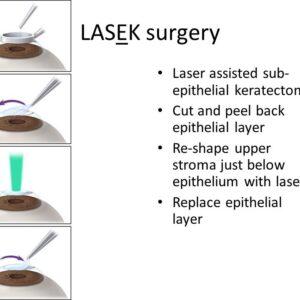
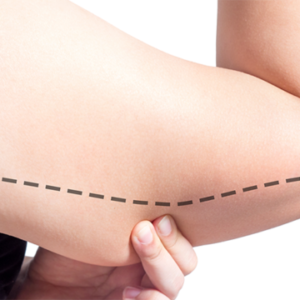
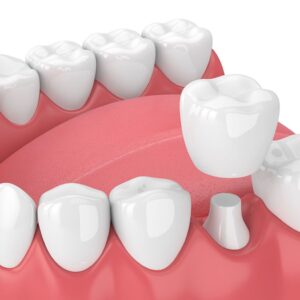



Choosing the right hospital and physician are important factors to consider that significantly influence a patient’s treatment. The preferred choice for many patients is choosing private care.
Choosing the right hospital and physician are important factors to consider that significantly influence a patient’s treatment.
Reviews
There are no reviews yet.